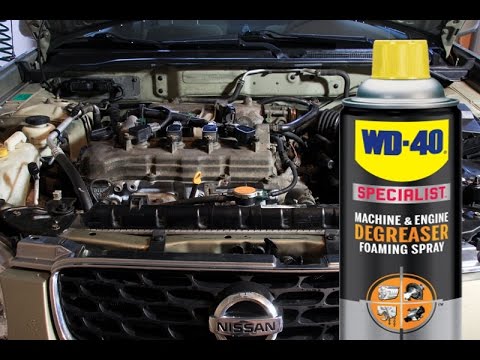Can You Use WD-40 to Clean Car Engine?
Introduction
WD-40 is a popular lubricant and water-displacing spray that is often used to clean and protect metal surfaces. However, there is some debate over whether or not it is safe to use WD-40 to clean car engines.
Benefits of Using WD-40 to Clean Car Engines
There are several potential benefits to using WD-40 to clean car engines, including:
- Removes dirt and grime: WD-40 is an effective solvent that can help to remove dirt, grime, and other contaminants from car engines.
- Lubricates moving parts: WD-40 can help to lubricate moving parts in car engines, reducing friction and wear.
- Protects against rust and corrosion: WD-40 can help to protect car engines against rust and corrosion by creating a protective barrier on metal surfaces.
Risks of Using WD-40 to Clean Car Engines
While WD-40 can be an effective way to clean car engines, there are also some potential risks associated with its use, including:
- Can damage rubber and plastic components: WD-40 can damage rubber and plastic components in car engines if it is not used properly.
- Can be flammable: WD-40 is a flammable liquid, so it is important to take precautions when using it around heat or open flames.
- Can attract dirt and grime: WD-40 can attract dirt and grime, so it is important to clean the engine thoroughly after using it.
How to Use WD-40 to Clean Car Engines
If you decide to use WD-40 to clean your car engine, it is important to follow these steps:
- Allow the engine to cool: Before you start cleaning the engine, allow it to cool completely. This will help to prevent burns and damage to the engine.
- Cover any sensitive components: Use a plastic bag or aluminum foil to cover any sensitive components in the engine, such as the electrical system or the carburetor.
- Spray WD-40 on the engine: Spray WD-40 liberally onto the engine, avoiding any sensitive components.
- Let WD-40 soak in: Allow the WD-40 to soak in for several minutes. This will give it time to dissolve dirt and grime.
- Scrub the engine: Use a soft brush or cloth to scrub the engine. This will help to remove any loosened dirt and grime.
- Rinse the engine: Rinse the engine thoroughly with water. Be sure to remove all of the WD-40, as it can attract dirt and grime.
- Dry the engine: Use a clean cloth to dry the engine thoroughly. This will help to prevent rust and corrosion.
Conclusion
WD-40 can be an effective way to clean car engines, but it is important to use it properly. By following the steps outlined in this article, you can avoid the potential risks associated with its use and enjoy the benefits of a clean and well-maintained engine.
Additional Tips
Here are a few additional tips for using WD-40 to clean car engines:
- Use a low-pressure spray: When spraying WD-40 on the engine, use a low-pressure spray to avoid damaging any delicate components.
- Don’t overdo it: WD-40 is a powerful solvent, so it is important not to overdo it. A little bit goes a long way.
- Clean the engine regularly: To keep your car engine clean and well-maintained, it is important to clean it regularly. This will help to prevent the buildup of dirt and grime, which can lead to problems.





